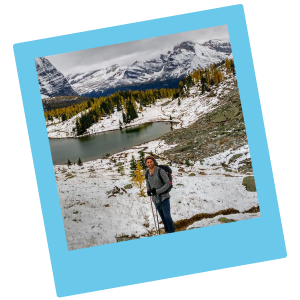By Dr Emad Ahangari, a class of 2014 graduate

The travel bug hit me when four friends and I went on a summer backpacking trip to South America in 2013. The most powerful thing that trip taught me is that travellers can be content with nothing but a backpack and some amazing experiences. Once I knew I’d got a taste for travelling, it made sense to use my degree to work and live overseas. I did some research and found that one of the most appealing places to live and register was Canada, so I began studying for the NDEB exams in my final year of study.
I sat the exams during the same week of our final OSCE for university. I found out I passed the exams during our graduate ball, which was probably one of the happiest moments of my life.
Looking for jobs online, I found an accounting firm which specialises in physicians and dentists, who were advertising a locum job opportunity on behalf of one of their clients. I sent an email and they were prompt in getting back to me: a job opportunity in the middle of nowhere, in the Rocky Mountains in British Columbia. By chance it happened to be for the president of the Canadian Dental Association. He ended up calling me for a short phone interview, and then agreed to give me a shot as a 3 month locum! I reluctantly handed in my resignation at my amazing job in Brisbane, and off I went into the unknown.
Most people in Canada have good dental insurance which covers anywhere from 50 - 100% of most of their basic dental care, and sometimes crowns, bridges and more complex stuff with pre-authorisations. This means that money is generally not an issue, and you can provide patients with the best treatment. It is far more common to have CDAs (Certified Dental Assistants), to whom you can delegate virtually any low-risk, non-invasive procedure, including putting on topical anaesthetic, applying rubber dams, taking x-rays and doing post op work, as well as polishing teeth after cleans and applying fluoride. This allows the dentist to manage their time more effectively. I was the only dentist in town, meaning I had to do complex surgicals. I also had to improvise with splinting teeth and repairing dentures in our makeshift lab at the clinic. The experience was fantastic. I always knew that in dentistry patient communication is vital, but I quickly came to see how immensely true this was when I was out in the middle of nowhere, especially with issues like informed consent.
As my 3 month contract was coming to an end, the principal dentist wanted me to stay on for another couple of months. I reluctantly declined as I am a city kid and it took 3 months in a rural mountain community to learn that. I applied for a job in Victoria BC and had another phone interview. Within 4 hours I had the job. After a short sabbatical, I flew across the province to the capital of British Columbia on Vancouver Island, and began work for a general dental clinic. Most of our patients were First Nation and I was the only dentist there performing oral surgery procedures. The work, colleagues and patients were great and I continued there for another 7 months. I then decided that it was time to move on. My next stop will be Vancouver and I’m currently looking for work there.
Working in Canada has been fantastic. Not only have I been given autonomy to perform complex procedures, I have also been graced with very generous and kind employers. Canadian people in British Columbia seem to be welcoming, friendly and progressive, and although every nation has its problems, Canada seems to be a shining example of successful multiculturalism and pluralism, and I believe we have a lot to learn from them. Some of the landscapes here have left me literally speechless, especially the lakes surrounding Banff, and I have made some amazing friends for life.
In general, I would definitely recommend working and living anywhere you can around the world. You can only benefit from the extra insight of cultures and practises, therefore becoming more rounded as a human being, not just professionally. You also learn a lot about yourself, as you have to pick up and start from scratch, forming new friends and adapting to new social structures.
This trip has definitely been a rollercoaster, but it is by far the best thing I've ever done. If you're thinking about going overseas then don't wait: take advantage of the working visa initiatives for young people in various countries and travel before you settle down! I especially recommend this if you don't have clarity about the next phase of your life. The daunting notion of 'the beginning of the rest of your life' after graduation can be quite heavy on the mind, and there is no better way to give yourself more perspective than to pack up and live overseas for a year or so.
The dentolegal adviser's perspective
Dr Mike Rutherford, Brisbane office
There is nothing like seeing how other people live and work to bring perspective to our own lives and thoughts. Whether it is to appreciate how lucky we are to live in a wealthy first world country after visiting poorer nations, or to see how we could do things better here in Australia after witnessing other cultures deal with work and life in general.
The commonality seems to be an emerging appreciation of how happy other people and you can be without the material things that we seem to value so much in our day to day life.
You can feel the excitement in Emad’s recounting of his travels and working overseas, and sense that he feels that he is a better person and practitioner for the experience. Go and try it for yourself.